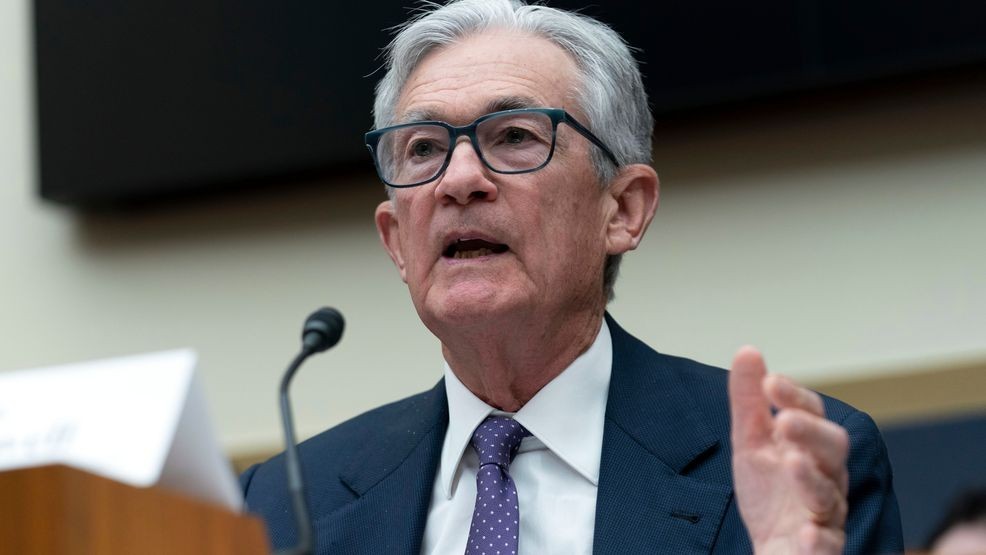WASHINGTON (TNND) — President Donald Trump continued to ramp up his feud with Federal Reserve chair Jerome Powell over the central bank continuing to opt against cuts to its benchmark interest rate with a call for him to step down from his post before his term expires in 2026.
Trump has repeatedly criticized Powell for the Fed’s refusal to cut interest rates since he took office amid complaints it is costing the country a “fortune” to finance interest payments on the national debt. Other administration officials have also gone after Powell and the Fed, accusing him of political bias and risking the health of the economy by not cutting rates.
The president called on Powell to resign for the second time in a week in a post on Truth Social as his administration grows more vocal in its critiques of the Fed’s handling of the economy.
“‘Too Late’ should resign immediately!!!” Trump wrote in reference to Powell, including a link to an article from Bloomberg News with comments from Federal Housing Finance Agency director Bill Pulte, another outspoken critic of Powell who accused him of lying to lawmakers during testimony to Congress.
Pulte has called on Congress to investigate and consider removing Powell over testimony about renovations to the central bank’s headquarters. Powell pushed back on reports of lavish renovations for Fed offices during testimony to Congress, which Pulte claimed was “enough to be removed ‘for cause.’”
It comes after Trump sent a handwritten note to Powell listing countries that have lower interest rates than the U.S. and the elevated rates are costing the country “a fortune.”
“Jerome, you are as usual, too late. You have cost the USA a fortune and continue to do so. You should lower the rate by a lot. Hundreds of billions of dollars are being lost and there is no inflation,” the note says in part.
Powell has consistently deflected when asked about Trump’s criticisms and the mounting political pressure on him and the Fed to cut rates. Rate decisions are not made unilaterally by the Fed chair and are instead decided by the 12 voting members of the Federal Open Markets Committee during their eight annual meetings.
“I’m very focused on just doing my job. I mean, there are things that — the things that matter are using our tools to achieve the goals that Congress has given us: maximum employment and price stability, financial stability. That’s what we focus on, 100%,” Powell said on Tuesday.
Powell has been consistent in the Federal Open Markets Committee’s approach to interest rates for months, insisting they can be patient with cuts because the economy is on mostly solid footing while they figure out what impact Trump’s tariffs will have on inflation. The Fed is concerned that cutting rates too soon could help fuel inflation — which is still over its 2% target — in addition to expected price increases because of tariffs.
Economists broadly expect Trump’s sweeping set of tariffs to result in higher prices for consumers as companies pass the added costs on. Inflation has stayed calm so far, but many economists and the Fed are expecting the price effects of tariffs to start showing up in inflation data during the summer months as businesses run out of supplies they built up before tariffs took effect and are forced to increase prices.
During a panel appearance on Tuesday, Powell suggested that the Fed may have already been able to lower rates if it weren’t for the aggressive tariff agenda.
“I do think that’s right,” he said in response to a question about whether the Fed would have cut rates by now without the tariffs.
Trump has floated naming Powell’s replacement well before his term expires in May and said a prerequisite for the next chair will be a willingness to cut interest rates, a promise that would undercut the central premise of the Fed having independence from the White House.
Independence from the White House has been seen as a vital part of the stability of the American economy and global financial system granted by Congress to ensure policy decisions were made on economic grounds rather than political motives.
Economists have warned that a deterioration of the Fed’s independence would have serious negative impacts on financial markets and could further undercut the dollar’s place as the top global currency. Analysts have already observed an increasing level of international transactions done in other currencies as the value of the American dollar has fallen some 10% due to tariff uncertainty.
Removing the Fed’s independence from political pressure could also harm its ability to fight inflation through managing its benchmark interest rates. If investors and consumers do not believe the Fed will reliably act to reduce inflation, prices could spiral out of control regardless of its monetary policy.
“The credibility of the Fed on price stability is very, very important,” Powell told lawmakers during a June hearing. “If that were to be called into question, then you’d see long term rates go up. I mean, that credibility once lost is very expensive to regain, is what the historical record says.”
